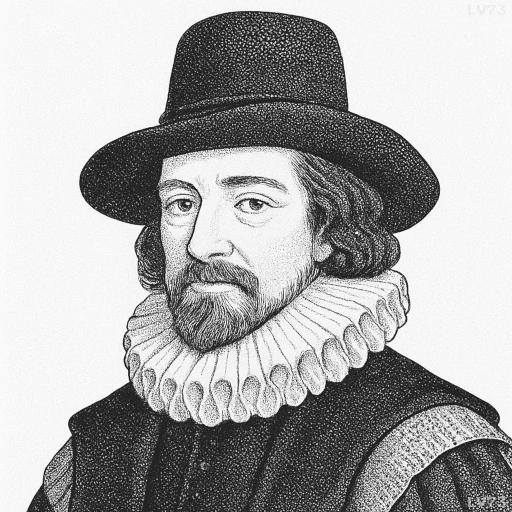“People have discovered that they can fool the devil; but they can’t fool the neighbors.”

- January 22, 1561 – April 9, 1626
- Born in England
- Philosopher, theologian, jurist, politician, aristocrat
table of contents
Quote
“People have discovered that they can fool the devil; but they can’t fool the neighbors.”
Explanation
In this quote, Francis Bacon reflects on the idea that while people may deceive themselves or even try to deceive higher powers—such as the devil, a metaphor for evil or temptation—they cannot easily fool those who are closest to them or aware of their actions. The “neighbors” represent the people in our immediate social circle, those who observe our behavior and actions. Bacon suggests that despite our ability to disguise our intentions or hide our true nature from external forces, our true character is often exposed in the day-to-day interactions with those who know us well. This speaks to the inherent transparency that comes with personal relationships and the honesty that is often required in close communities.
Bacon’s view reflects the Renaissance understanding of human nature and morality, where social reputation and the judgment of others were important measures of a person’s virtue. In Bacon’s time, the idea of public reputation was tied to social cohesion, and one’s actions were expected to align with their public image. People might deceive external, spiritual forces (like the devil), but their true nature would inevitably be exposed in the eyes of others, especially those with whom they had direct social connections.
In modern times, this quote resonates with the idea of authenticity and social perception. Today, public relations, social media, and personal branding all play significant roles in how people present themselves to the outside world. However, close relationships—whether with family, friends, or colleagues—are often more revealing of a person’s true character. The quote serves as a reminder that deception may be possible in broader contexts, but those who know us best are often the ones who can see through false appearances. Bacon’s insight encourages the value of genuine self-presentation and living honestly, recognizing that social circles and reputation often reveal who we truly are.
Would you like to share your impressions or related stories about this quote in the comments section?



